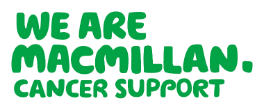Travel and cancer
Travelling can be fun and fulfilling. But when you have cancer, you may have a few more things to think about if you’re planning a trip.
It’s important to check whether you’re fit to travel. Your doctor can tell you if there is anything that could make travel unsafe.
You may be advised to avoid flying if you:
- are breathless
- are anaemic
- are at risk of developing swelling in the brain
- have recently had surgery
Cancer treatments, like radiotherapy and chemotherapy, can sometimes cause short-term physical problems. Some treatments can also make your skin more sensitive to the sun. These effects can limit the amount of travelling you can do – or the type of activities you do while you’re away. If you want to travel abroad, it can also be more difficult to get travel insurance.
Being in the middle of treatment doesn’t always mean you can’t travel. It may be possible – for example between courses of chemotherapy. Talk to your cancer specialist about the best time to go away. They should also be able to give you advice about supplies you need, or any dietary issues you should think about. With good planning, you can often avoid travel problems.
Checklist – things to consider before you travel
For all travellers:
- are you fit to travel safely?
- will you need a travel companion or helper to accompany you?
- will you need any special equipment?
- have you let the travel company and your accommodation know about any particular needs?
- do you need any particular vaccinations for the destination – remember to take any relevant certificates with you
- have you got enough medicines/medical supplies for the whole time you will be away – remember to take extra supplies in case your return is delayed
- do you have your passport and another form of proof of UK residence, such as a driver’s license?
- do you have your travel insurance policy and certificate?
- have you packed all your medical supplies or equipment in your hand luggage, where you can keep a careful eye on them?
- if you’re travelling to a European Economic Area country or to Switzerland: do you have your European Health Insurance Card?
If you’re travelling with medicines for more than 3 months do you need or have a personal medicines license?
If you’re going abroad for planned treatment do you have an S2 form (unless you will be claiming under Article 56)?
If you have severe mobility problems do you have your Blue Badge, if you think you’ll need it?
If you have a stoma does your hotel or accommodation have en suite facilities, including facilities to dispose of appliances, if you think this will be necessary?
Getting healthcare abroad
UK residents who hold a European Health Insurance Card (EHIC) are entitled to free or reduced-cost emergency treatment when visiting the European Union (EU) – and certain other European countries.
You will be treated in the same way as a resident of the country you are visiting, including treatment for chronic or pre-existing conditions.
Some countries outside the EU also have mutual healthcare agreements with the UK.
To claim free or reduced-cost treatment in countries like these, you’ll need to prove you are a UK resident. This usually involves showing a UK passport.
In countries that aren’t covered by the EHIC, and where there is no mutual agreement with the UK, you’ll have to pay the full cost of healthcare. Taking out comprehensive travel insurance is important. You may need to pay for treatment while you’re abroad and then claim this money back. Your insurance provider can guide you through this process.
Remember, the EHIC won’t pay to transport you back home in an emergency (repatriation). This may be covered by your travel insurance.
How cancer can affect getting travel insurance
Having cancer can affect buying travel insurance. Recent health problems are known as pre-existing conditions. Insurers assess your personal information to estimate how likely you are to cancel your holiday due to your condition. They will also predict the potential cost of treatment abroad.
Be open about your health and ask travel insurance providers for their guidance – their approach may vary. Depending on your individual circumstances, it’s possible that they may not insure you. Alternatively, they may offer you travel insurance with their usual terms and conditions, or with:
- a higher premium (the amount you pay for travel insurance)
- an excess (an amount you pay if you make a claim)
- a cancer-related exclusion
A cancer-related exclusion means you won’t be covered for any claims related to your cancer. The terms and conditions of the policy may also refer to someone else who might cause you to make a claim. This means you need to tell the insurance company if someone else’s health may affect your trip – for example, your partner, relative or friend.
Always check with your provider what you are and aren’t covered for.
Taking care in the sun
Protecting your skin from the sun is important for everyone. But some cancer treatments, like chemotherapy, radiotherapy and biological therapies, can make your skin more sensitive to damage. It’s important to take extra care – during and after treatment.
Some tips for protecting yourself are:
- wear a wide-brimmed hat
- use sun-cream with a high sun protection factor (SPF)
- wear clothing made of cotton or natural fibres
- try to sit in the shade
- avoid the sun between 11am and 3pm
If you’ve had radiotherapy, keep the affected area well covered.
The type and dose of your treatment will affect how sensitive your skin is to the sun. Ask your doctor whether you need to take special care to protect yourself.
Avoiding health problems
If you become ill while staying in a hotel, ask the receptionist to call a doctor. If you need urgent attention, contact the emergency services or visit the emergency department of the nearest hospital. If you have time, try to seek help and advice from a doctor or nurse who speaks the same language as you – the Foreign and Commonwealth Office may be able to help.
Keep the names and addresses of friends and relatives with your passport so that British Consular officials can contact them if their help is needed. It’s important to keep these details up to date for each time you travel.
If you need to return to the UK quickly, you should also contact British Consular officials (read the Foreign and Commonwealth Office website for details). They can usually arrange this for you, but you may need to pay the costs.
Wherever you are in the world, be careful about what you eat and drink.
Many infectious diseases are spread by contaminated food and water. This includes water in swimming pools, lakes, rivers and the sea, so try not to swallow water when you’re swimming.
Tips for avoiding stomach upsets
- if you’re not sure that drinking water is clean, you should sterilise it (you can do this by boiling it for 1 minute, or by using a filtering system or sterilisation tablets; at high altitudes, you may need to boil water for longer than usual to sterilise it properly)
- use bottled water if you are not sure that the water is clean
- make sure that seals on bottles of water are not broken before opening
- avoid ice unless you’re sure it is made from safe water
- only eat freshly cooked food that has been cooked thoroughly and is still hot
- avoid uncooked food, unless you can peel or shell it yourself
- avoid food that may have been exposed to flies, such as food from street traders
- avoid ice cream from unreliable sources, such as kiosks
- avoid or boil unpasteurised milk
- be careful when eating shellfish as they may contain harmful bacteria – make sure shellfish is cooked thoroughly, or avoid eating it
Last updated:
11 March 2024

